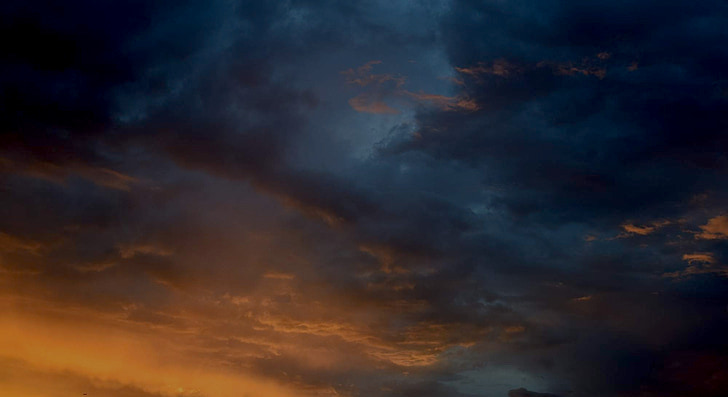
The Eighth Day
The eighth day of the miluim — inauguration of the Mikdash — was a momentous time. Unfortunately, the day was marred by the death of Aharon’s sons, Nadav and Avihu.
Although Chazal mention faults of Nadav and Avihu, Moshe Rebbeinu told Aharon, “Through those who are close to me I will be sanctified.” Rashi explains: “I knew the Mikdash would be sanctified by those close to Hashem. I thought it would have been me or you — now I see that your sons were greater than either of us.” (Shemos, 10:3)
Nadav and Avihu were exceptionally great. How can this be reconciled with the various opinions regarding the faults of Nadav and Avihu?
Everyone makes mistakes, as the Torah tells us: “There is no tzadik who does good without sin.” (T’hilim, 7:20) Why were Nadav and Avihu chosen for this calamity? “Es asher ohaiv Hashem yochiach” — “The one that Hashem loves, He reproves.” (Mishlei, 3:12)
As we will soon see regarding the tzara’as — nega’im often come as a result of various sins, such as loshon horah; nonetheless, the rishonim write that tzara’as was a special distinction for Klal Yisrael. (See Ramban, Parshas Metzora) “Nega’im make a mizbe’ach kapora — an altar of atonement.” (B’rochos, 5b)
Rava said, “Everyone that Hashem loves, He smites with yesurim (afflictions) — as it says, ‘Hashem desires the sick.’ (Yeshaya, 53:10) Yesurim atone as the korbanos do: Just as korbanos require da’as (attention), so yesurim require da’as.” (B’rochos, 5a)
Yechezkel’s Plight
Yechezkel Hanavi was told to lie on his left side for three hundred and ninety days to atone for Beis Yisrael, then on his right side for forty days, to atone for Beis Yehuda. During this time, he could only eat disgusting food. (Yechezkel, chapter four) In Sanhedrin 39a, Rebbi Abahu explains: “If a king is angry with his people — if he is violent, he may kill them all. If he has some mercy, he may kill half of them. If he is compassionate — full of mercy — he will afflict the gedolim among them. So Hakadosh Baruch Hu afflicted Yechezkel in order to cleanse the guilt of Yisrael.”
The Pandemic and Religious Communities
The fact is that religious communities are very close-knit, integrated people, often living in or near densely populated areas. Covid-19 is highly contagious, traveling up to twelve feet in the air. People living away from the epicenter don’t realize that for those at ground zero, it is nearly impossible not to be affected… The governor compared the spread across New York state to burning embers blowing in a field. You cannot blame the victim: we know many, many tzadikim who followed all the rules but were not spared.
Yesurim make us stronger. This is the rule: we gain from illness and challenge. It makes us better people; but we have to learn to introspect and seek ways to grow.
Zecher L’mikdash
Nearly two hundred years ago, Rav Yoseif Zundel and Rav Nachum of Shadik were among many great tzadikim who died from an epidemic. We can’t fathom the ways of Hashem; Rav Meir Auerbach sought the lesson from the greatest of the mekubalim of the time. He was taught to ask a sheilas cholom. In the dream he was told that honor had to be given to the memory of the destroyed Beis Hamikdash. As a result, the Rabbonim decreed that music shouldn’t be played at weddings in Yerushalayim.
Now we are saying sefiras ha’omer; no shehechiyanu is recited because this is a somber time — recalling the mitzva of the korbon omer and shtei halechem which we are lacking… According to Tosafos, sefiras ha’omer is a zecher d’rabonon.
Now is not the time for philosophical ponderings or angry rhetoric. Twelve thousand people have died in New York State. Our people are in pain. Now is the time for action; help, make calls, do mitzvos, learn Torah, daven. Cry out for the Beis Hamikdash, which lies in ruins; but we must come together.
When the Chofetz Chaim heard of a tragedy which occurred to non-Jews across the world, he cried and said everyone should fast. It was a sign for teshuva. Surely, when our own people lay in hospital beds — what could be a stronger sign?
Information or Defamation?
The seforim tell us not to believe derogatory information. Loshon horah is forbidden even if true. The measure is not truth or falseness, but intent to damage reputation.
If it might be true, how can I not believe it? Derogatory information can be found about anyone. If you let your friend say derogatory information about Reuven to you, what will prevent him from saying derogatory information about you back to Reuven? Why not, it’s the truth!
Its not the information that counts, as much as the reputation that’s being affected. Information needs context; without the context, without the other side of the story, “information” may be purely destructive.



